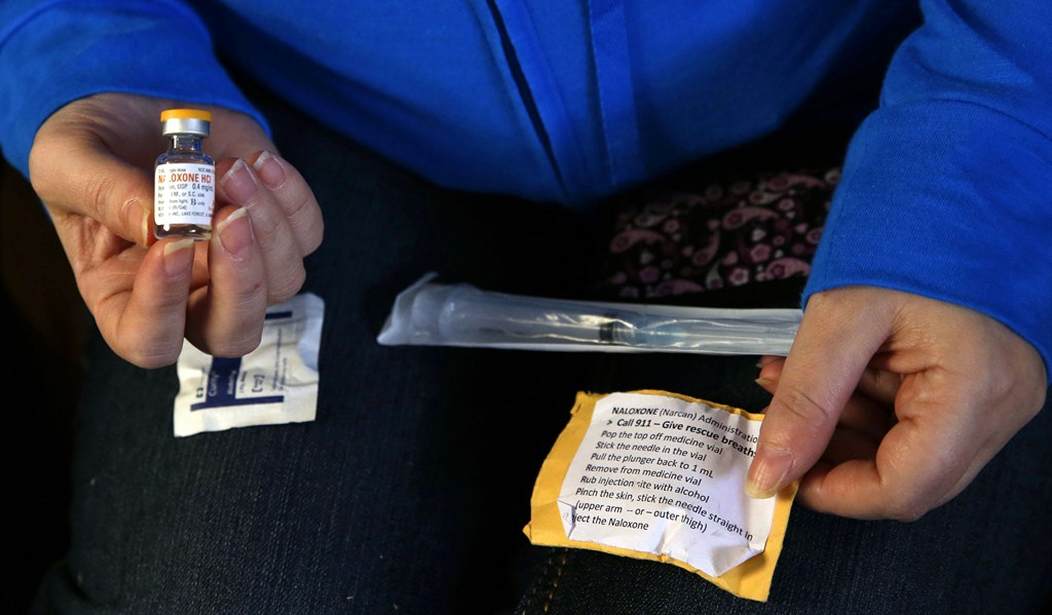Give Middletown Councilman Dan Picard full marks for administrative ingenuity, if nothing else. Facing rising costs from the erupting opioid crisis plaguing the US, and angry at repeat offenders, Picard offered an “outside the box” solution. Why not just let them die after three responses?
All due respect to Remy and Reason, but this case could be an exception:
Frustration over the amount of money and public safety services being devoted to drug overdoses led to one Middletown City Council member asking if it was possible for the city to not respond to such calls.
Saying the city needs to think outside the box, Middletown City Council member Dan Picard asked if it was possible for EMS to not respond to overdose calls. …
“I want to send a message to the world that you don’t want to come to Middletown to overdose because someone might not come with Narcan and save your life,” Picard said. “We need to put a fear about overdosing in Middletown.”
What could go wrong?
In fairness, the issue got prompted by the budget hit that Middletown’s taking. It’s not that they didn’t see issues with opioids as a potential crisis, but the costs have really exploded for it. The city budgeted $10,000 this year for Narcan, the antidote of choice for overdoses, but at the moment they’re on pace to spend $100,000 — and that might be a conservative estimate. That’s no small amount of money for a Rust Belt city with slightly under 49,000 residents and a median household income (estimated as of 2015) of $36,700. Unemployment in 2015 was 9.3%, far above the national average. This is not a town with a lot of opportunities to make up budget shortfalls, and many of the calls are for transients who don’t live in Middletown at all.
On top of that, police have had to make a number of repeat calls on addicts, and not just in Middletown. In Dayton, police had to supply Narcan twenty times to one individual:
One east Dayton man has been revived by nalaxone 20 times by police, but a Dayton police major still doesn’t agree with a Middletown politician suggesting law enforcement stop responding to opioid overdoses.
“We’ve Narcan’d the same guy 20 times,” Dayton police Major Brian Johns said. “There has to be some sort of mechanism or place for people like that. If you’re not going to get help, we’re going to require you to get some sort of treatment going. Because that is a waste of police resources.”
Still, the first responders in Middletown don’t want to make the decision of who lives or dies on their own, for sound moral as well as legal reasons:
“It’s a frustration issue,” said Middletown Fire Chief Paul Lolli. “I get it.”
However, he said the medics took an oath to take care of people who are hurt, sick, or injured regardless of cost.
Lolli said Picard’s suggestion of not responding to overdoses would open the city and the Division of Fire’s medical director to liability issues.
Well, yeah. While Picard’s “right to be frustrated,” as the director of a new addiction clinic told Dayton Daily News, letting people die isn’t the answer. Perhaps mandatory incarceration and treatment would cost less in the long run in both lives and cash. Showing up to inject Narcan or its generic equivalent multiple times (at $36 a pop just for the drug) is not getting the job done.







Join the conversation as a VIP Member